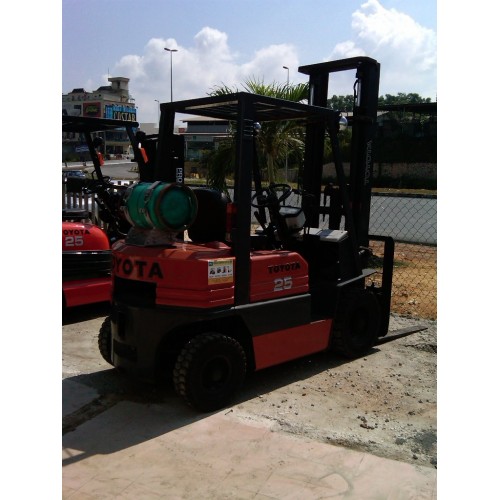In the world of material handling and logistics, efficiency and sustainability are paramount. Businesses are continually seeking innovative ways to optimize operations while reducing their environmental footprint. One such innovation that has been making waves in the industry is the LPG forklift.
The LPG Advantage
LPG, or Liquified Petroleum Gas, forklifts are gaining popularity as a versatile and eco-friendly alternative to traditional diesel or gasoline-powered forklifts. These machines run on propane, a clean-burning fuel that offers several advantages for businesses across various sectors.
1. Environmental Friendliness:
One of the primary reasons behind the increasing adoption of LPG forklifts is their environmental friendliness. Propane is a low-carbon, clean-burning fuel that produces significantly fewer emissions compared to diesel or gasoline. This means reduced air pollution, making LPG forklifts a greener choice for businesses aiming to minimize their carbon footprint and meet sustainability goals.
2. Cost-Effective Operation:
LPG forklifts are known for their cost-effective operation. Propane fuel tends to be more affordable than gasoline or diesel, and LPG forklifts typically have lower maintenance costs due to cleaner combustion. This combination translates into significant savings over the life of the forklift.
3. Versatility:
LPG forklifts are highly versatile and can be used both indoors and outdoors. Unlike electric forklifts, they don’t require long charging times and can operate continuously by simply replacing the propane tank. This versatility makes them an ideal choice for businesses with mixed indoor and outdoor material handling needs.
4. Performance and Power:
LPG forklifts offer robust performance with ample power for lifting and transporting heavy loads. They are known for their quick acceleration and the ability to handle demanding tasks efficiently.
5. Reduced Noise Levels:
Compared to their diesel counterparts, LPG forklifts produce less noise during operation. This can lead to a quieter and more comfortable work environment, particularly in indoor settings.
6. Easy Refueling:
Refueling LPG forklifts is a straightforward process. It involves replacing the propane tank, which can be done quickly, allowing for minimal downtime.
Applications Across Industries
LPG forklifts find applications across a wide range of industries:
- Warehousing and Distribution: LPG forklifts are commonly used for efficient material handling within warehouses, ensuring products are moved swiftly and with minimal environmental impact.
- Manufacturing: In manufacturing facilities, LPG forklifts play a vital role in transporting raw materials and finished products, contributing to efficient production processes.
- Construction: These forklifts are well-suited for construction sites where the need for versatility and power is paramount.
- Retail: Retailers often rely on LPG forklifts for unloading and organizing goods in stores and distribution centers.
- Agriculture: In agriculture, LPG forklifts assist in moving crops, equipment, and supplies, combining power with eco-friendliness.
Conclusion
LPG forklifts are emerging as a compelling solution for businesses seeking efficiency and sustainability in their material handling operations. With their reduced emissions, cost-effective operation, and versatility, they represent a significant step toward greener, more responsible logistics practices. As the business world increasingly emphasizes environmental responsibility, LPG forklifts are poised to play a pivotal role in shaping the future of material handling.

